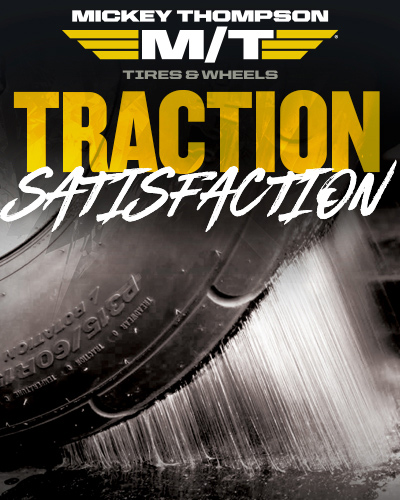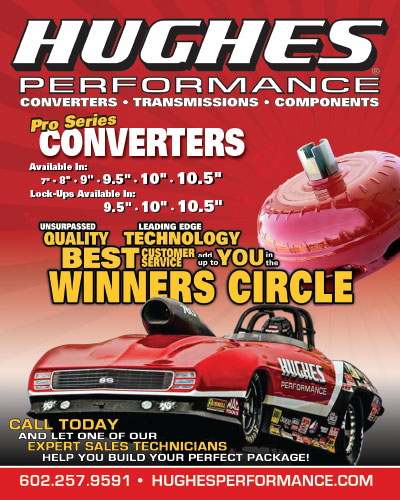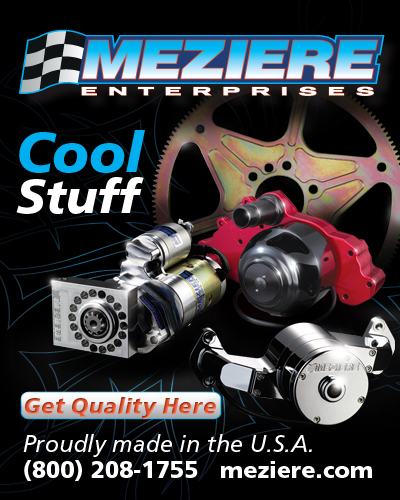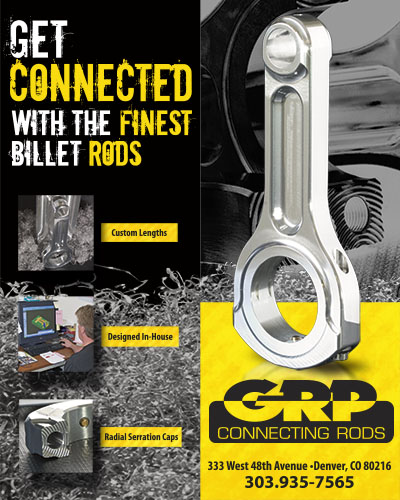LIFE SIMPLY HAS CHANGED FOR SKUZA, FORMER FUNNY CAR FAVORITE
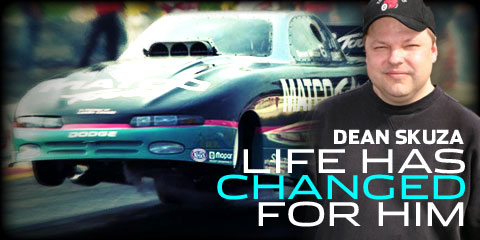 The excess was intoxicating. Drag racing, particularly its nitro Funny Car class, was the loudest, smelliest, most gut-churning, and in Dean Skuza's words, "the most luring thing I'd ever seen."
The excess was intoxicating. Drag racing, particularly its nitro Funny Car class, was the loudest, smelliest, most gut-churning, and in Dean Skuza's words, "the most luring thing I'd ever seen."Today, Dean Skuza says he has "lost interest in it, pretty much."
How could that be?
The young man from Brecksville, Ohio, had been hypnotized, nearly, with it all. "The whole idea behind a Funny Car -- the short wheelbase, trying to go that fast -- it almost defies physics," he had said. Skuza, who naturally gravitated to things defiant, didn't take long to climb from the top of the grandstands at the IHRA race at nearby Norwalk and into one of the swoopy, crazy-fast machines. And he became one of the best on the NHRA tour.
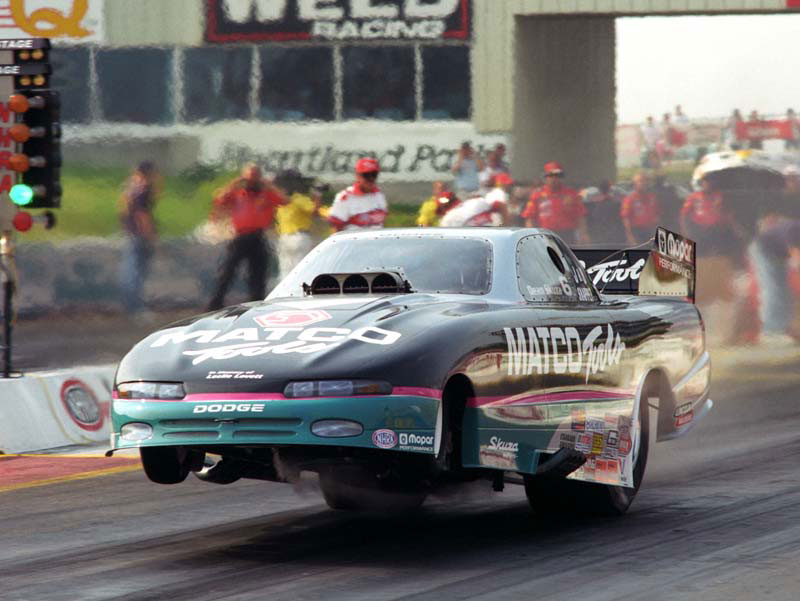
The excess was intoxicating. Drag racing, particularly its nitro Funny Car class, was the loudest, smelliest, most gut-churning, and in Dean Skuza's words, 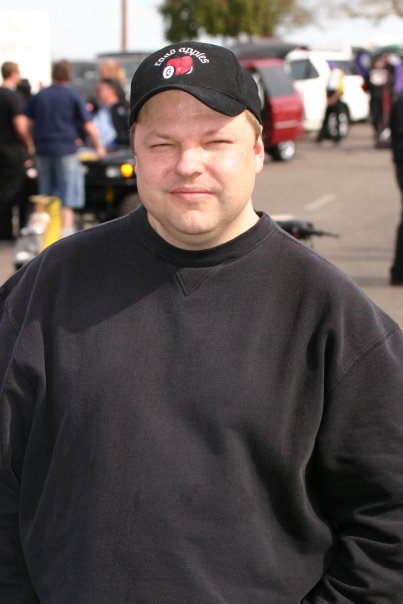 "the most luring thing I'd ever seen."
"the most luring thing I'd ever seen."
Today, Dean Skuza says he has "lost interest in it, pretty much."
How could that be?
The young man from Brecksville, Ohio, had been hypnotized, nearly, with it all. "The whole idea behind a Funny Car -- the short wheelbase, trying to go that fast -- it almost defies physics," he had said. Skuza, who naturally gravitated to things defiant, didn't take long to climb from the top of the grandstands at the IHRA race at nearby Norwalk and into one of the swoopy, crazy-fast machines. And he became one of the best on the NHRA tour.
"I fit right in because I am excessive. I was very compulsive," Skuza said. "I was into fishing, and I went to an encyclopedia and learned about fish. Then I'd go to the library and get another book about fish, just try to find out any information I can about it. Then I would go to the tackle shop and talk to people. That's how I am in everything I do."
He got that gene from dad Don, a passionate man who took up golf and bought 10 sets of clubs. "I think of it as normal. That's how I was brought up," Dean Skuza said. "Everything he got into, it was never halfway. Then a couple of years would pass, sometimes a couple of months, and he'd get into something else. But racing is the first thing we've done together that we didn't put the toy in the corner. It really hooked us, because of the challenges."
The financial challenge proved too much, and Dean Skuza disappeared from the NHRA landscape in 2003.
Gone was the popular driver who borrowed the marketing magic of Tom McEwen, the bravado of rebel Jerry Ruth, the exuberance of Jungle Jim Liberman, cockpit intensity of Lee Shepherd, imagination of Mickey Thompson, and vision of Billy Meyer. Gone was the media darling, appropriately an Ohio University graduate with a degree in journalism, who was no one-trick pony. Gone were the interviews that touched on not just drag racing but also on fine dining, heavy-metal rock music, baseball, writing, adventure, and intrigue from this overgrown, hot-rodding, holeshotting Hardy Boy.
a d v e r t i s e m e n t
Click to visit our sponsor's website
He test-drove a couple of times for Mike Ashley. But he has not made an appearance since March 2007, when he sat two cars behind Eric Medlen at Gaineville, Fla., the day the John Force Racing protégé experienced the crash that proved fatal. "That was the last day I drove, not by choice but just by the way things worked out," Skuza said. "But maybe that's a blessing."
Blessings, including the birth of second son Daniel three years ago in March, have visited Dean Skuza since he left racing. But he has had his share of scares and scars and sorrows -- but also delights -- in his cold-turkey withdrawal from the sport.
Maybe most surprising -- at least to his legion of loyalists -- is this realization of Skuza that he has "lost interest in it, pretty much."
What could have taken the starch from the seemingly always happy Skuza? Money, for one thing.
"I don't know how you could do it anymore, without laundering your own money," Skuza said. "We did it for a long time and we put in a lot of our own money. I think if we thought it was possible to do where you didn't have to spend that much of your own money, we may have looked at doing it again. But I had marketing people working for me and I had been to the table with several sponsors -- and these are big-pocket sponsors. They're not going to put the kind of money that it takes into our sport. They won't do it.
"I've talked to people who can afford it. They didn't see the value in it," he said, adding that he felt the same way about the modern-era sponsorship set-up. "It's difficult to get the money that it takes. They may kick in a million dollars and you have to work your ass off to get that, doing all these shows and running around the country. And this is to get a quarter of what basically you'd be spending. I just didn't see in value in it.
"It's a big sacrifice," Skuza said, reluctant to leave wife Lynette and sons Donny, 12, and Daniel, almost three, for the nomadic life he once accepted blithely. "It would take a lot to get me to spend that much time away from my family again. My 12-year-old, I don't even remember him growing up because of the racing. And I didn't realize that until we had the second boy. I've been with him practically every day of his life. I didn't realize how much I missed. I don't remember any of that with Donnie. I missed a lot. So it'd have to be a really, really good deal to spend that many days on the road again."
a d v e r t i s e m e n t
Click to visit our sponsor's website
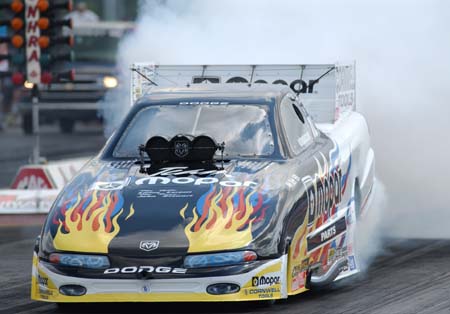 Complicating matters was a downward spiral of health issues that started in January 2008, with a case of appendicitis.
Complicating matters was a downward spiral of health issues that started in January 2008, with a case of appendicitis.
He went through with the surgery, awoke from it and found, he said, that "the doctor had hit an artery and to make a long story short, they had to cut me in half to repair this artery -- which in turn shut my intestines down. And I was in the hospital for almost three weeks.
"I got out in February and it took me awhile to get back on my feet again," he said. "They literally had to take my intestines out an look for this artery. I guess it was like a C-section times 10.
"I just hadn't been feeling good ever since then. Ever since that operation, I just never got my energy back, never really felt like myself. I started getting these headaches. I started putting on a ton of weight, and I wasn't eating nothin'. Finally I went into the doctor and they said that probably because of the anesthetic from these operations that I had hypothyroidism. So now I had a thyroid disorder. So now I'm on medication for that, and I'm just now starting to feel better.
"It's been difficult for the past two years of my life," Skuza said. "I kept saying, 'What's next?!' I kept saying that. Now I don't say that anymore." Then with the impishness that made him such a fan favorite, he said, "But I want to know what the hell's next."
a d v e r t i s e m e n t
Click to visit our sponsor's website
At the moment, he's developing his Skuza Motor Sports Business in suburban Cleveland.
"We've gotten into other things. I started another business about three and a half years ago . . . a classic-car dealership," he said.
"We bought the building next our race shop. And it's a showroom, nothing but classics. Basically it's just a collection. You've got to drive these cars. My dad's got about 15 cars. I have about four cars. You can't drive 'em all the time. The worst thing you can do is have 'em just sitting there.
"I like cars. I love 'em. And I love to drive 'em. But this will just give me an opportunity to sell the cars and buy new cars and get sick of those and buy new cars -- like you did with toys, you know? That's basically why we're doing it -- we love cars so much. But you drive 'em for awhile and then say, 'OK -- let's get something different.' We still have fun."
Jimmy Vance, one of his longtime crew members, Rick Grenda, who was about to join the team when Skuza stopped racing, work for him in this new venture. Another fellow Skuza promises "is the best painter east side of the Mississippi" is working with him, too.
"We have a lot of fun with it. We're just working at the ones we want to concentrate on," he said, skipping the "heavy-duty resto projects." He said they just got a '56 beauty that easily could eat up six to eight months of TLC.
"We're working on the Website now: skuzamotorsports.com. That's where people will be able to find these cars. But the Website's probably not going to be up till after the first of the year," he said. "We're going to utilize eBay along with the Website so people will be able to see the cars that are going to up on auction and they'll be able to make us offers maybe before they even go on eBay.
"A lot of 'em we'll buy and do nothing to. It's amazing how many classics there are out there that just aren't running right (with ) a simple mechanical problem. But these people will sell the car for next to nothing because they don't know what it is. They think it's something bad. We'll give it a run-through and find what the problems are and mechanically make it nicer and do nothing else to it and increase the value by two-three-four-thousand dollars. Those are the ones that are fun," he said, "because you get to drive them a little bit then you sell it (to make money for) the next one. You make a little profit, too. And you've made a car so someone can drive it. That's better than it sitting in someone's garage."
a d v e r t i s e m e n t
Click to visit our sponsor's website
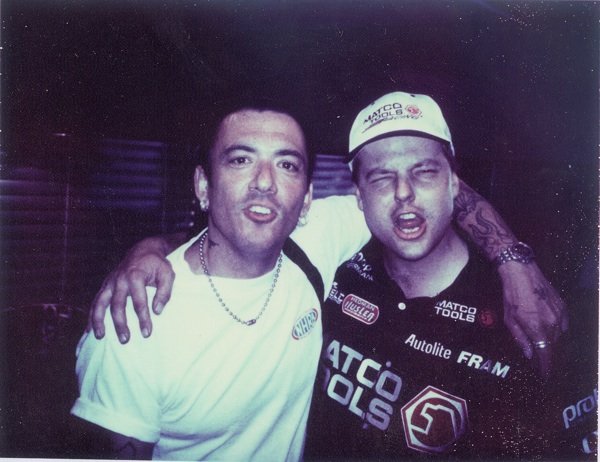
"I'm not a fan of it. But I think it was the right thing to do at the time. I really do," Skuza said. "I don't see another way that you could have quickly done something to be proactive. I know the Kalitta thing was a series of problems and that may never rear their ugly head again. It may never happen that way again. But you have to put yourself into NHRA's shoes.
"It's real easy to be a racer like myself or a fan, like I am now, and say, 'Aw, they should do this or that.' . . . You have to really try to envision yourself as running an organization with all the liability and the responsibility for safety . . . and sit down and say, 'What would you do to make this sport safer?' I'll tell you what, that was the easiest thing to do and the most effective way to do it, because it did a lot of things," he said.
"I raced on a lot of tracks that were way too short. And it was never really an issue -- yet. I told my dad all the time, 'Man, someone is going to kill himself here,' Pomona being one of them. That is so dang short. The fear of one little problem . . We've seen numbers of cars go into the sand. Every year it happens. Even sportsman cars find themselves on their sides down there. If you take the Kalitta accident and you put that at Pomona, it could have been worse. Thousand-foot racing solved that.
"I never raced 1,000 feet. But I picture Pomona being 1,000 foot -- that's probably not an issue there. The drivers probably don't even think it’s short anymore whereas when we were running out the back door there . . .holy smokes, man. Early laundry, everything like a half-a-second early, you still barely made it.," Skuza said. Still, he said, "No one had a major issue.
"You hate to see the rule book being written in blood, but that's why I always thought 1,000 foot was a good idea. It was so proactive. It killed a lot of birds with one stone, shortness of tracks being one of them. You can't sit around and wait for the next accident. I wouldn't be surprised to see a bunch of other things racers and fans might be uncomfortable with but it's all about anticipation," he said.
"That's how you write a good rule book, not by waiting for it to happen but by anticipating the next one," Skuza said. "That's awfully hard to do. It takes a lot of minds, thinking -- all day. If you're part of a rules committee, some of these thoughts might happen at night or at the dinner table.
"I think the best rule book ever written has got to be the PGA Rulebook. I don't watch a lot of golf, but the golf that I have watched, you may see something totally unbelievable. And they have a ruling for it in 15 seconds, no matter what it is. If a ball bounces off a bird's head, they know what they're going to do. They didn't wait for that to happen, that scenario. They thought about it before it happened. You've got to look at the PGA Rulebook. I'd love to get a copy of it and read it. They know exactly what to do, no matter what."
a d v e r t i s e m e n t
Click to visit our sponsor's website
Skuza said he misses the competition: "I can't do anything that will ever come close to that. I've gotten involved in some things that get your adrenaline up, but nowhere near that level. And I really miss that. I don't think I'll ever do anything again that was that much fun -- and that much challenge. It was so hard to compete with the Forces at that time. It was almost impossible. Yet man, we must have been stupid, because we just kept trying.
"But even bigger than that is the fans. I miss them. I really do.
"How many friends I made across the country. You don't even realize -- you get an e-mail from out of nowhere, and its some guy who sends me a picture I forgot about. It's amazing how many people I've met across the country -- well-wishers. It's crazy, because you know how racing is -- once you stop, people forget about you. It's like the music industry times 10: What have you done for me lately? If you're not there -- boom -- it's forgotten," he said.
"And I still get blasts from the past. And that's what's so neat abut the Internet. I'll just open my mailbox and see some of this stuff and there'll be some of this stuff and like, 'Wow! Where did that come from?'
"It's touching that people would take the time," Skuza said. "I guess I'm not a real fan -- because I wouldn't do that. I dig music a lot, but I would never take the time to write Bruce Springsteen or something. (He probably get a gazillion -- I get one a month.) Everyone wants the sport to continue and be guided in the right direction, because there's a lot of really loyal people following it and watching it. They deserve it."
Dean Skuza, this constantly restless man, husband, father of two, once quipped, "If I had one wish, it would be that I didn't have to sleep. You could give another one-third of your life back to you. I just want to do everything. I constantly feel like I'm leaving something on the table, and I hate that feeling."
He has no hate in his voice, none in his heart. He understands that drag racing is part Standard & Poor, part Barnum & Bailey. It's a business-sport, a sport-business. And sometimes the passion and pocketbook just don't mesh. But Dean Skuza is content, glad for his family and his health -- and eager to see what 2010 brings.
| {loadposition feedback} |
Advertisement


























